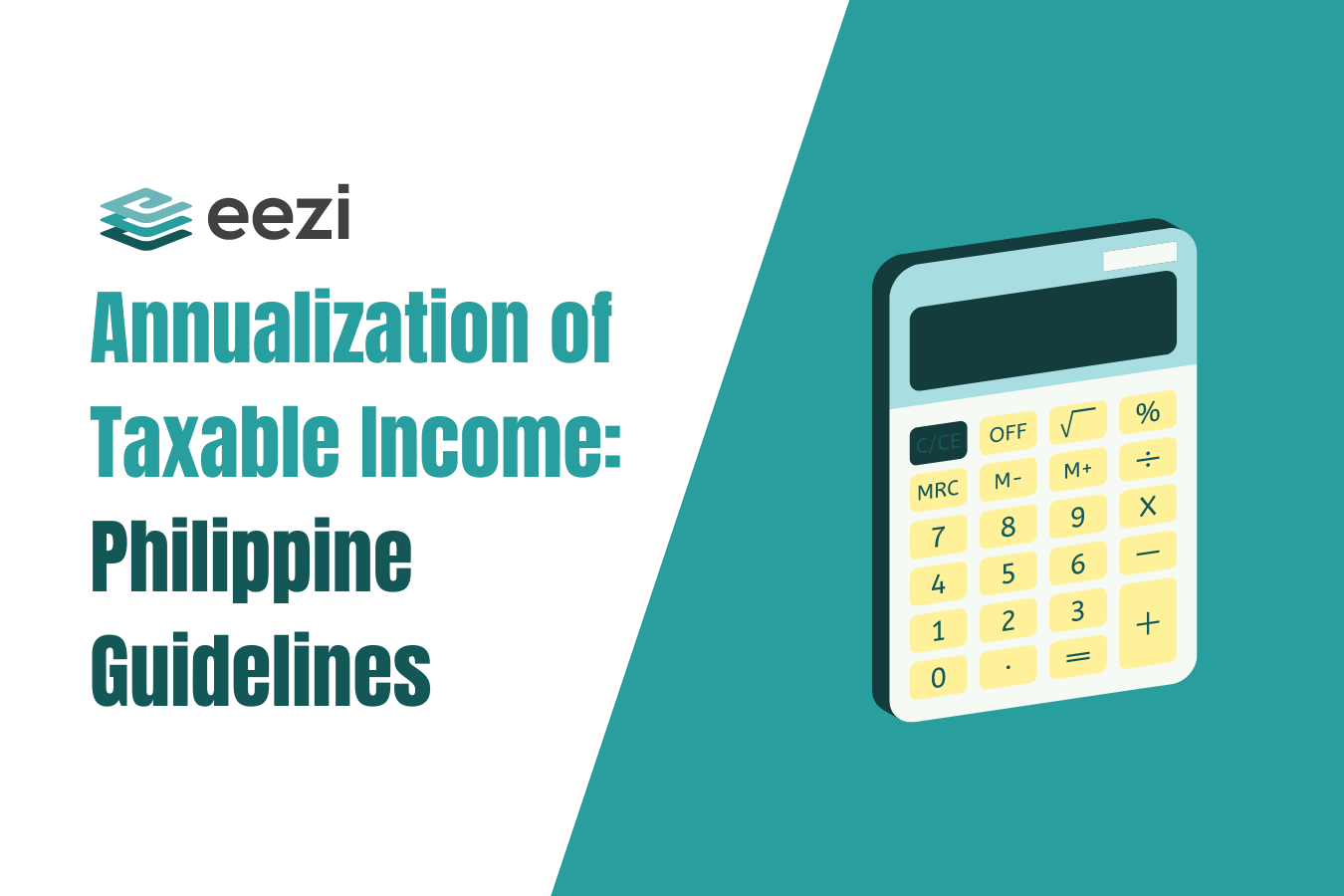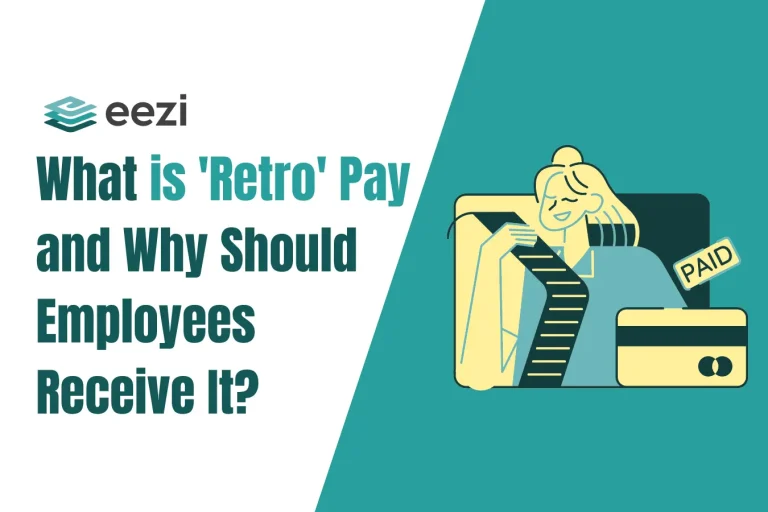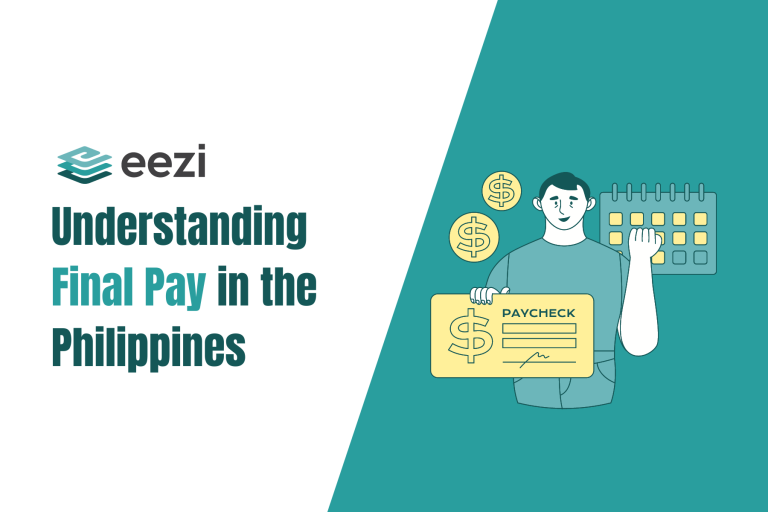What is the annualization of taxable income in the Philippines? Learn all about this rule and see the guide for proper computation.

Income tax deductions used to consume a large portion of employees’ salaries in the Philippines. However, the Tax Reform for Acceleration and Inclusion (TRAIN) Law brought in a more rationalized tax reform.
Under this legislation, personal income taxes of 99% of Filipino workers all over the country decreased. Moreover, the implementation of the TRAIN Law exempted employees whose annual taxable income is below PHP 250,000 from paying personal income taxes.
Other employees in higher taxable income brackets also saw reduced tax rates ranging from 15 to 30 percent in 2023. With this law, tax annualization is less stringent on the employee’s basic salary, especially for minimum wage earners.
What is Tax Annualization?
Tax annualization is a process used by companies to adjust the taxes withheld and owed on employees’ salaries over a financial year. It ensures that both employees and the company accurately pay the required taxes to the Bureau of Internal Revenue (BIR).
By annualizing employees’ total taxable income, companies can determine if employees are eligible for an income tax refund or if they owe additional taxes. This simplifies the calculation of withholding taxes in advance.
Why is it important to annualize income tax?
Annualizing income tax is crucial because employee income tax is typically calculated using withholding tax tables for regular payroll runs, such as monthly or bi-monthly payments in the Philippines. This predetermined withholding tax amount is an estimate and not the final income tax liability.
Tax annualization happens at the end of the calendar year or when an employee leaves the company. This ensures the accurate calculation of an employee’s Net Taxable Compensation Income based on the applicable tax bracket in the Income Tax Table. This helps determine if the employee is due a tax refund for overpaid taxes or if they owe additional taxes.
In essence, tax annualization helps reconcile the estimated taxes withheld with the actual annual tax liability, ensuring fairness and accuracy in tax payments.
Income Tax (TRAIN) CalculatorHow do employers annualize income tax?
Employers annualize income tax by following these steps:
- Prepare an annual summary of employees’ earnings and deductions for the entire fiscal year.
- Calculate the total non-taxable and taxable income for the year, including items like De Minimis benefits and 13th-month pay (subject to certain limits).
- Determine the total amount of employee contributions to SSS, PHIC, and HDMF (excluding employer contributions).
- Calculate the total amount of Withholding Tax Compensation deducted from the employee during the year.
- Compute the Net Taxable Compensation Income by subtracting total contributions from total taxable income.
- Use the Income Tax Table to determine the employee’s tax bracket based on their Net Taxable Compensation Income.
- Subtract the Total Withholding Tax from the computed Income Tax Due.
- If the result is positive, deduct the remaining tax due from the employee’s salary. If it’s negative, the employee is due a tax refund.
This process ensures that employees pay the correct amount of taxes based on their annual income and deductions.
The following formula should be used to compute the Income Tax Due:
Income Tax = ((Net Taxable Compensation Income – From) x Rate) + Fix
FAQs on Tax Annualization
What is withholding tax, and why does it need to be applied to an employee’s salary?
The Withholding Tax on Compensation is a type of tax deducted by an employer from an employee’s income. The amount deducted from the employee’s income is not fixed. It is based on the amount that an employee earns over a certain period. Withholding tax in advance reduces the cost of collection efforts.
This strategy prevents delinquencies and revenue loss and prevents a deficiency in the fiscal conditions of the government by providing revenues throughout the whole fiscal year.
What are de minimis benefits and other compensations that are not subject to withholding taxes?
De minimis benefits are small additional compensatory values employers award to their employees on top of the usual basic compensation. These act as tokens or perks for the general welfare of the employees and can come in various forms, such as transportation allowances, minor expenses, or food. However, these benefits are minuscule in value and are not taxable compensation.
What is an income tax table?
An income tax table is a chart provided by the Bureau of Internal Revenue (BIR) that outlines the amount of tax owed based on an individual’s income. It is divided into brackets, which correspond to different income ranges and filing statuses. Moreover, this table helps taxpayers calculate their liabilities when filing their annual tax returns.
Are productivity incentive schemes taxable?
Productivity-Based Incentive Schemes (PBIS) encourage employees to commit to the job at hand and become more productive. These other benefits are either cash or non-cash incentives and are not taxable income.
However, the total amount does not exceed Php 10,000.00, following the Internal Revenue Code, particularly Revenue Regulation No. 1-2015.
How does tax computation work?
Simply put, to compute and determine taxable income, the total tax deductions are subtracted from the gross compensation. The resulting difference is taxable income. Then, the appropriate tax bracket is applied based on the annual income tax table.
Here is a sample computation:
If you earn Php 25,000.00 in a year, your tax will be Php 3,107.00.
This means that your net pay will be Php 21,893.00 per fiscal year or Php 1,824.00 per month.
Your average tax rate is 12.4%, and your marginal tax rate is 5.0%.
Related: How to Calculate Your Gross Income
Make Tax Annualization Computation eezi!
eezi offers a payroll system with user-friendly modules that makes tax computation and annualization more accurate and stress-free!



